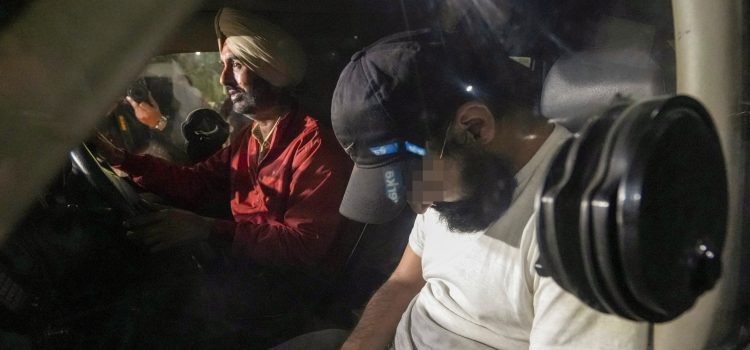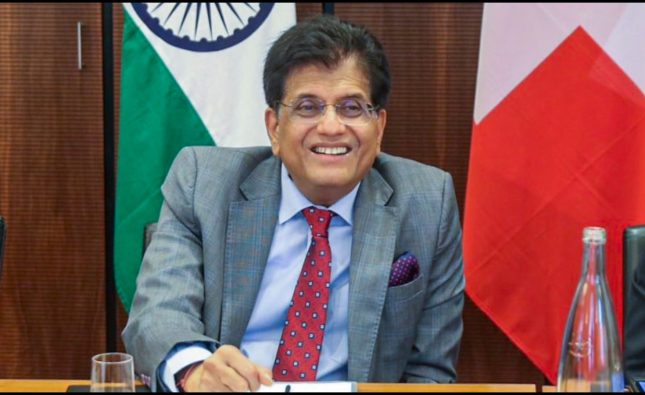
Hoping for a better future, they left home with aspirations of settling in the US. Families sold land, took loans, and made sacrifices to send them abroad. But instead of new beginnings, they returned to Amritsar on a US military aircraft, deported, disheartened and uncertain about what comes next.
In the second batch of deportees, 65 were from Punjab, 33 from Haryana, and eight from Gujarat, while Uttar Pradesh, Goa, Maharashtra, and Rajasthan had two each. Himachal Pradesh and Jammu and Kashmir had one deportee each.
Sourav, 20, returned to his village Chandiwala in Punjab’s Ferozepur district on Sunday after being caught by US authorities while attempting to cross the border on January 27. He had left home for the US on December 17 last year.
“We were kept in a camp (detention centre) for 18 days,” Sourav said, adding that their mobile phones were taken away.
“A day before yesterday, we were told that we will be shifted to another camp. When we were put into a plane, they said we are being taken to India,” Sourav said.
Sourav’s family pinned their hopes on a new future, selling two acres of farmland and borrowing heavily to fund his journey abroad. “We spent ₹45-46 lakh,” he said.
The path to the US took him through Amsterdam, Panama, and Mexico, only to end in detention.
Recounting his return, he described a grim journey home. “We were handcuffed, and our legs were chained,” he said, recalling the deportation flight that brought him back to Amritsar—far from the dreams he once chased.
Harjit Singh from Khanowal Ghuman village in Punjab’s Gurdaspur district had set out for a better life with his cousin. Instead, they returned home in restraints.
“We were caught crossing the US border on January 27 and kept in a detention centre for 18 days. We were deported on February 13, handcuffed with our legs chained,” he said after reaching home at 6 am.
His family had spent ₹90 lakh to send them abroad—money that now feels like a painful loss.
“We were assured that we will be taken to America legally, but we were not,” said Harjit Singh, his voice heavy with disappointment. Dreams of a new life in the US had led him down a path of false promises and shattered hopes.
Mantaj Singh, a 22-year-old from Bodal village in Hoshiarpur shared a similar ordeal. The moment he set foot near the US border, he was caught by the Border Patrol.
Like many others, he had taken the notorious donkey route—a dangerous, illegal passage migrants use to enter the US, trusting in the words of those who saw them as little more than a payday.
In Kapurthala district’s Behbal Bahadur village, the parents of Sahil Preet Singh had spent their life’s savings— ₹40-45 lakh—to send their son abroad.
His mother, Harvinder Kaur said they sold agricultural land, pawned gold ornaments, and borrowed from relatives, only to be deceived by a travel agent.
“We were duped,” she said, demanding that the Punjab government provide her son with a job and take action against the fraudulent agent who ruined their dreams.
Jaswinder Singh, from Dharamkot village in Moga, set out for the US nearly 45 days ago. A sarpanch from his village said the family had sold one-and-a-half acres of land, raising ₹45 lakh for the journey.
However, instead of a new beginning, Jaswinder and his family found themselves trapped in a web of deceit, cheated by the very agent they had trusted.
Their stories echo those of many others. When the first batch of deportees landed in Amritsar on February 5, most of them from Punjab, their accounts were strikingly similar.
They had all hoped for a better life, only to return home empty-handed, victims of a system that preys on desperation.
With PTI inputs
{{/firstName}} {{^firstName}}
{{/firstName}} {{/tokenValid}}
{{/tokenValid}}
See less











